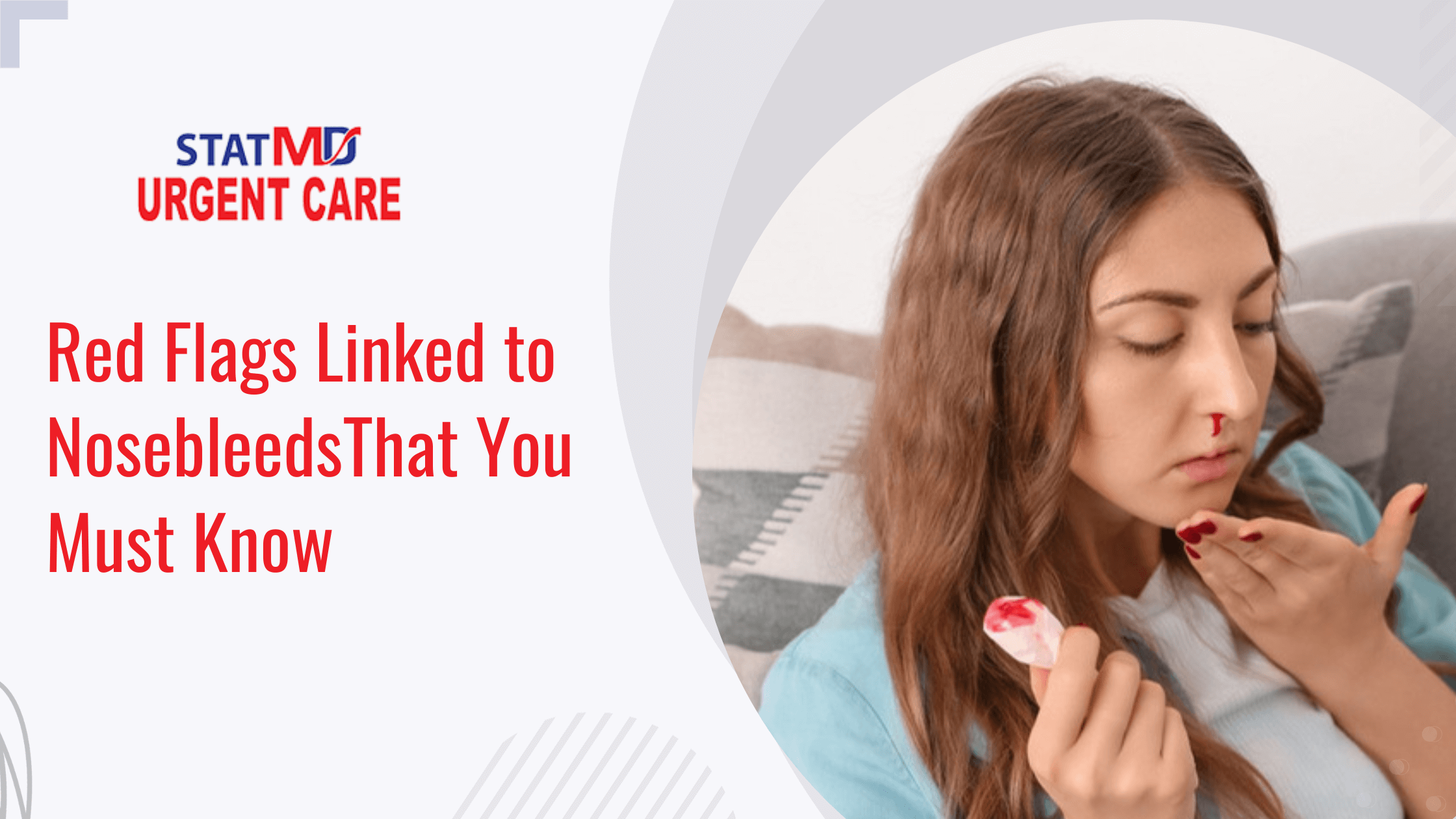
Flu Shots Now Available Don't Miss Out on Limited Supply!
For Young St: (661) 464-5000
For Panama Lane: (661) 464-5001

If you find blood after wiping your nose, it indicates that you have suffered a nosebleed. It is a common medical condition, with nearly 60% of people experiencing it at some point. In most cases, nosebleeds aren't severe and can be resolved at home. Only 10% of patients require medical attention. Let's look into this topic and identify the associated red flags.
A nosebleed is the loss of blood from the tissue that lines the inside of your nose. The nasal septum has many blood vessels, leading to blood flow when certain factors aggravate it. While it may happen in both nostrils, more often, it occurs in one nostril. Anyone can have a nosebleed, but it is more commonly seen among children between the ages of 2-10 and adults above 50.
Doctors, based on credible sites, classify epistaxis into 2 types:
They occur in the front of your nose, on the lower part of the septum, where the blood vessels are more fragile. It is the more common type of nosebleed often seen in children. Mainly, they don't require medical treatment.
They occur when the larger blood vessels deep inside the nose bleed. They may require treatment as they may cause heavy bleeding. This condition is more common among adults.
Hot and dry air is the most common cause of nose bleeding as it dries out the delicate nasal membrane, making it cracked and crusty. In such a scenario, picking or blowing your nose may lead to nose bleeding. However, several other factors may cause nose bleeding, such as:
Other nose bleeding causes, though rare, include:
If you have high blood pressure, the blood vessels are prone to damage due to increased pressure, and this may be a reason for nose bleeding. However, according to the American Heart Association, if you suffer from a hypertensive crisis, a medical condition in which your blood pressure is extremely high, you may experience nose bleeding directly linked to your BP stats.
Seeing blood flow out from the nose may be unsettling, but usually, it is not a matter of great concern. However, nosebleeds can become alarming if you experience:
Despite your self-care efforts to stop nose bleeding, you may need professional healthcare if it persists. You must visit an urgent care for nose bleeding if:
As mentioned above, most nosebleeds are cured with home care. The nose bleeding treatments you may try at home are:
However, if you need medical attention, the epistaxis treatment you may receive at an urgent care include:
Final Words
Each instance of nose bleeding or epistaxis you experience may not be alarming, but you must be informed about the red flags associated with nosebleeds. It enables you to take appropriate measures that facilitate faster relief, such as visiting an urgent care near you.
Our licensed and experienced team at StatMD Urgent Care has provided high standards of care for various non-life-threatening conditions since 2004. Open 365 days a year, our clinic is equipped with the most advanced diagnostic and treatment technologies that allow us to offer you the best solutions for your unique health needs. For more information on the services we offer, contact us today.
4 nosebleeds a day may signify a more serious health condition such as a bleeding disorder, tumor in the nose or sinus, or very high blood pressure.
Nose bleeding in one nostril is caused by a deviated septum or due to the presence of a prominent blood vessel on one side of the nose.
Stress does not directly cause nosebleeds, but certain stress-induced behaviors or health conditions may be responsible for nosebleeds.
A. Most nosebleeds last a few minutes, but if it lasts more than 15 minutes, get medical care as soon as possible.